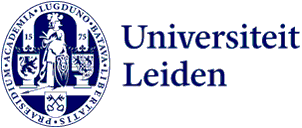
Wopke Hoekstra in conversation with students about the NATO summit: 'In a dangerous world, we are always on the road towards peace'
Wopke Hoekstra, outgoing Minister of Foreign Affairs visited Leiden University, Campus The Hague on 6 July to talk to students about the upcoming NATO summit in Vilnius, Lithuania. After listening to his insights, the students had the opportunity ask the outgoing minister some questions
'The war in Ukraine was a wake-up call for everyone who still had doubts about NATO’s usefulness.'
The event, which was organised in collaboration with the Netherlands Atlantic Association and the Young Atlantic Association, was opened with a word of welcome by Ernst Dijxhoorn, assistant professor at the Institute of Security and Global Affairs (ISGA) and a warm applause for the outgoing minister.
The focus of the event was on the upcoming NATO summit, which will take place on 11 and 12 July in Vilnius, Lithuania. What is at stake for the Netherlands? Hoekstra began with an introduction on security, stressing that this is a term closely linked to democracy and prosperity that will remain relevant for a long time to come. He shared some wisdom he learned at the kitchen table when he was young: 'Si vis pacem, para bellum' (if you want peace, prepare for war).
The Dutch defence policy has recently been revised and, according to the outgoing minister, this puts an end to the illusion that we should not be prepared for war. He spoke of the need for realism across Europe: 'The war in Ukraine was a wake-up call for everyone who still had doubts about NATO’s usefulness'.
He hoped to be able to go a step further at the NATO summit: 'We’re ready to step up and pay the price. It’s the sacrifice required to keep our country safe in a troubled and insecure world.'
Lucas, affiliated with the Young Atlantic Association, asked how cybersecurity fits into the NATO summit picture. The outgoing minister replied that cyber can be seen as the fourth domain to be added to the classic three (land, sea and air). He also mentioned the fifth domain, space.
Klaartje, an intern at Foreign Affairs, inquired after all the difficulties regarding Sweden's admission. The outgoing minister replied that he felt impatience and uncomfortable about the amount of time it takes to admit Sweden: 'We need to ensure credible deterrence, Northern Europe included.'
Sem Grootscholten, lecturer at Leiden University’s Institute of Public Administration, asked how exactly we ensure deterrence in Europe. Hoekstra mentioned that it is important to make sure we do everything that is necessary, for instance, making sure there are enough weapons and holding talks with the Russians and Chinese. We need to put the lessons learned from the Cold War into practice. 'We have to ensure long-term stability in Europe, because Russia is not going away,' Hoekstra said.
The outgoing minister parted with some encouraging words: 'For anyone under 30, this is a great topic to get stuck into. Good luck!
Photos: Arash Nikkhah

